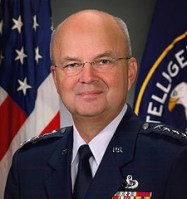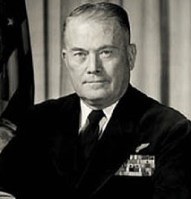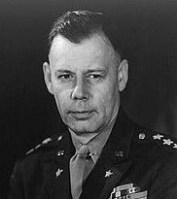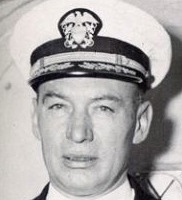
Hayden

Turner

Raborn

Smith

Hillenkoetter
I remember when Harold Brown was Jimmy Carter’s defense secretary. Heck, I remember when Bob McNamara was JFK’s defense secretary, so let me rephrase that: I covered Harold Brown as Jimmy Carter’s defense secretary.
There’s been a flurry of reports over the last couple of days about how the shift of Leon Panetta from the CIA to the Pentagon blurs the lines between spying and soldiering. “President Obama’s decision to send an intelligence chief to the Pentagon and a four-star general to the Central Intelligence Agency is the latest evidence of a significant shift over the past decade in how the United States fights its battles — the blurring of lines between soldiers and spies in secret American missions abroad,” the New York Times reported Thursday.
They need Paul Harvey to note the rest of the story: Panetta will be succeeding Robert Gates, who spent his entire professional career – 26 years, compared to Panetta’s two years and three months – at the CIA. Panetta’s a politician and an academic — not a spy-master. And, back in 1973, James Schlesinger moved from running the CIA to managing the Pentagon.
And as for a military officer being tapped to run the CIA? Been there, done that:
— Roscoe Hillenkoetter, 1947–1950, a Navy admiral, actually returned to the fleet following his CIA tour.
— Walter Bedell Smith, 1950-1953, an Army officer for 42 years, including his time running the CIA.
— Former Navy admiral William Raborn, 1965–1966, served an unhappy 14 months as CIA chief.
— Stansfield Turner 1977–1981, served part of his tour as CIA chief as an active-duty admiral in the Administration of his Naval Academy classmate, Jimmy Carter.
— Michael Hayden, 2006–2009, served part of his CIA stint as a four-star Air Force general.
Running the CIA – or the Pentagon, for that matter – is a lot like being skipper of an aircraft carrier (note that three of the five CIA chiefs who came from the military were Navy officers). Both national-security institutions have so much mass, and so much momentum, that the guy in charge is like the sailor who puts his hand in water as his warship steams along and thinks he’s steering.
The press is good at focusing on today’s news, and overdrawing conclusions about what it means. “Simplify, then exaggerate,” goes the line. But big changes in these kinds of behemoths can only come from the top. Christopher Preble of the libertarian Cato Institute had it about right the other day when speaking of the chance of change inside the Pentagon, and its missions, given Panetta’s nomination to run the joint. “In all likelihood,” he noted, “such a change must be directed from the Oval Office, not the Pentagon.” That’s not a likelihood, it’s a requirement.


